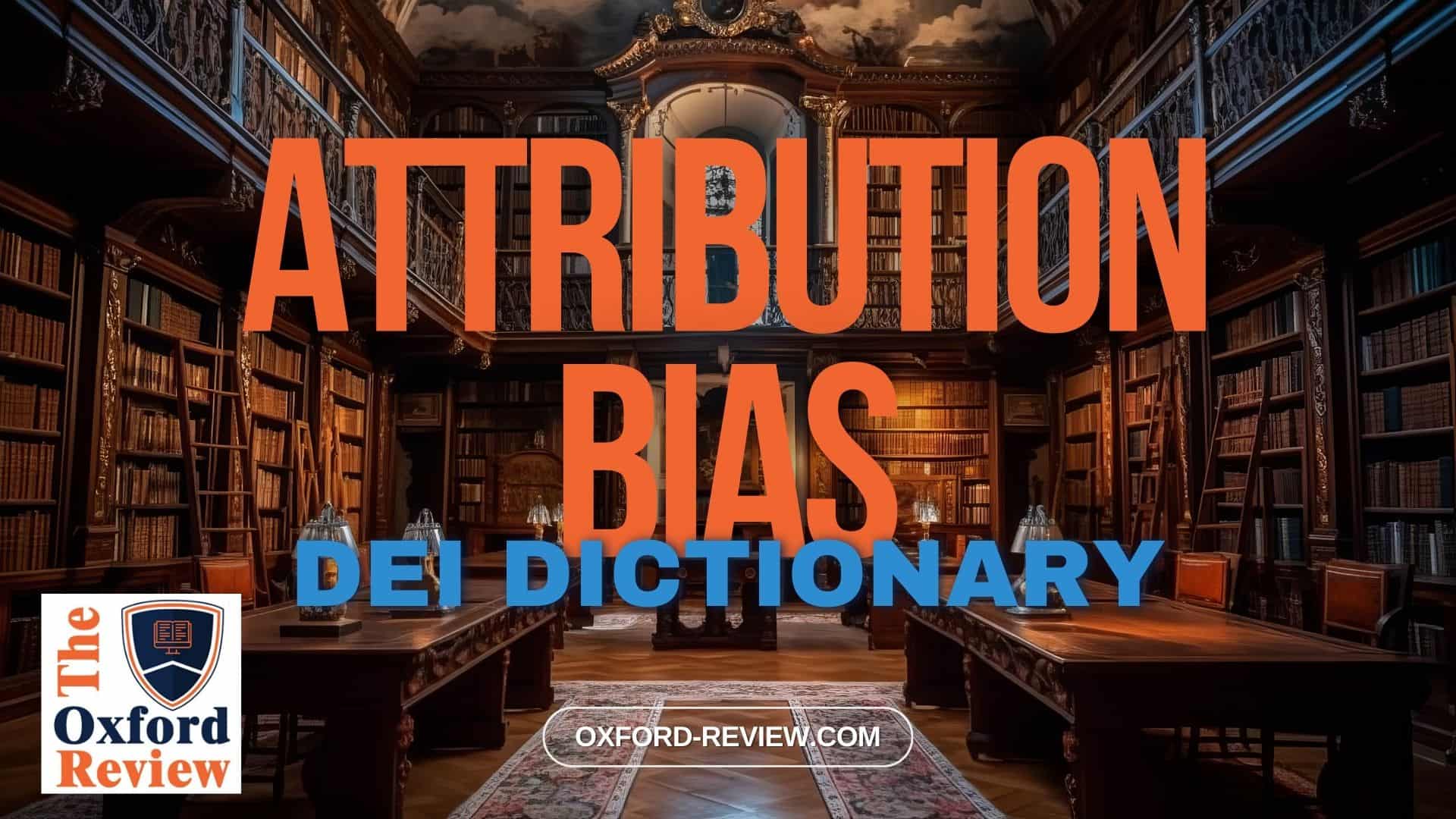Attribution Bias – Definition and Explanation

Understanding Attribution Bias: Definition, Examples, and Impact on DEI
Attribution bias is a psychological phenomenon that significantly influences how individuals perceive and interpret the actions and behaviours of others. In the context of Diversity, Equity, and Inclusion (DEI), comprehending attribution bias is crucial for fostering a more inclusive and equitable environment.
Definition:
Attribution bias, also known as attributional bias, refers to the tendency of individuals to attribute the behaviour of others to internal characteristics (such as personality or disposition) while overlooking external factors or situational influences. In simpler terms, it involves making judgements about why people do what they do, often based on incomplete or biased information.
Examples:
To illustrate attribution bias, consider a scenario where two employees, Alex and Taylor, are working on a team project. The project encounters delays, and as a result, the deadline is missed. When evaluating the situation, the team leader attributes the delay to Alex’s incompetence, believing that they are lazy and lack motivation. This is an example of internal attribution bias, as the leader attributes the cause of the problem to Alex’s personal qualities.
In contrast, when a similar situation occurs with Taylor, the team leader attributes the delay to external factors, such as unforeseen circumstances or technical difficulties. This illustrates the tendency to attribute behaviour to situational factors rather than internal traits, known as external attribution bias.
Impact on DEI:
Attribution bias can have significant implications for DEI efforts within organisations. When individuals make biased attributions about the actions of their colleagues, it can lead to unfair treatment, stereotypes, and perpetuation of inequality.
For example, if a woman of colour is consistently overlooked for leadership opportunities within a company, it may be due to attribution bias. Colleagues or supervisors may attribute her lack of advancement to her perceived lack of ambition or competence, rather than considering systemic barriers or unconscious biases at play.
Addressing Attribution Bias in DEI Initiatives:
Recognising and addressing attribution bias is essential for promoting diversity, equity, and inclusion in the workplace. Organisations can take several steps to mitigate the effects of attribution bias, including:
- Education and Awareness: Providing training and education on cognitive biases, including attribution bias, can help individuals recognise and challenge their own biases.
- Promoting Transparency: Encouraging open dialogue and transparency within teams can help uncover biases and promote fair decision-making processes.
- Implementing Bias-Mitigation Strategies: Introducing structured decision-making processes and diverse hiring practices can help minimise the impact of attribution bias on organisational outcomes.
- Encouraging Perspective-Taking: Encouraging employees to consider alternative explanations for behaviour and to take the perspective of others can help reduce the influence of attribution bias.
Conclusion:
Attribution bias is a prevalent cognitive bias that can influence how individuals perceive and interpret the actions of others. In the context of DEI, understanding attribution bias is critical for promoting a more inclusive and equitable workplace environment. By addressing attribution bias through education, awareness, and proactive strategies, organisations can foster a culture of diversity, equity, and inclusion where all employees feel valued and respected.
References:
Tetlock, P. E., & Levi, A. (1982). Attribution bias: On the inconclusiveness of the cognition-motivation debate. Journal of Experimental Social Psychology, 18(1), 68-88. https://www.sciencedirect.com/science/article/abs/pii/0022103182900828
Haggag, K., Pope, D. G., Bryant-Lees, K. B., & Bos, M. W. (2019). Attribution bias in consumer choice. The Review of Economic Studies, 86(5), 2136-2183. https://academic.oup.com/restud/article-abstract/86/5/2136/5101316?login=false
Libby, R., & Rennekamp, K. (2012). Self‐serving attribution bias, overconfidence, and the issuance of management forecasts. Journal of Accounting Research, 50(1), 197-231. https://onlinelibrary.wiley.com/doi/full/10.1111/j.1475-679X.2011.00430.x
Be impressively well informed

Get the very latest research intelligence briefings, video research briefings, infographics and more sent direct to you as they are published
Be the most impressively well-informed and up-to-date person around...
